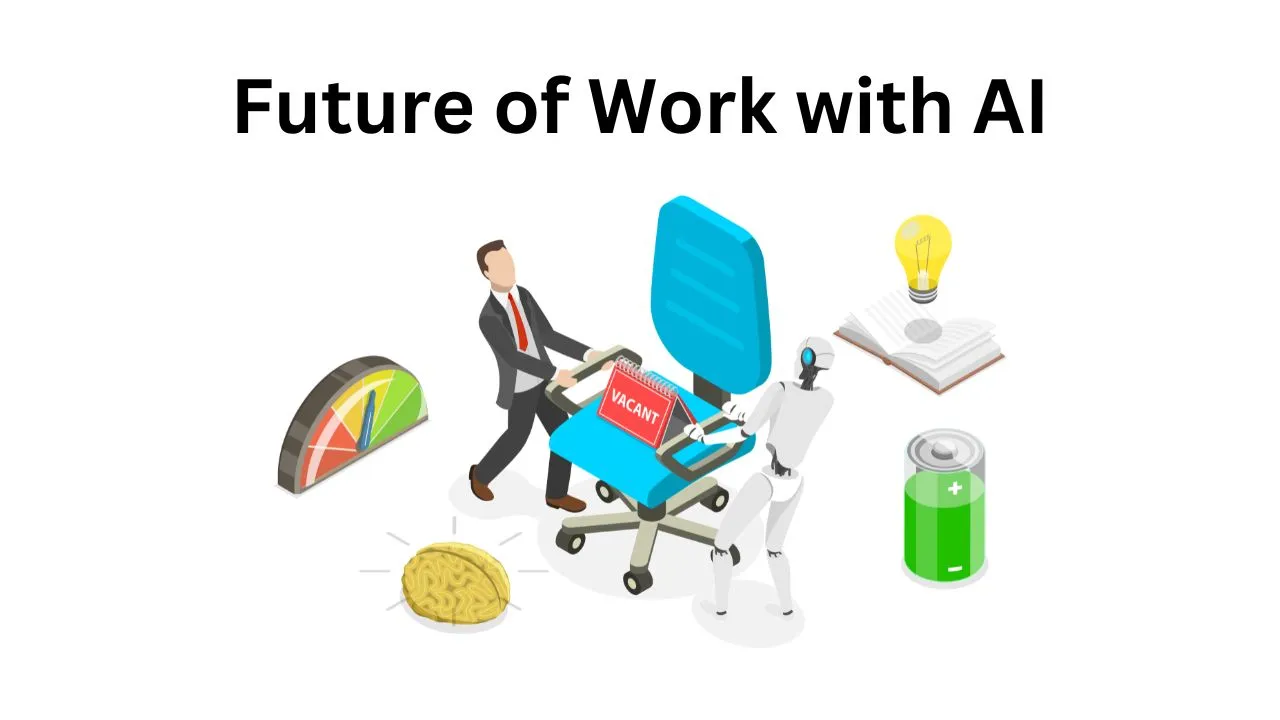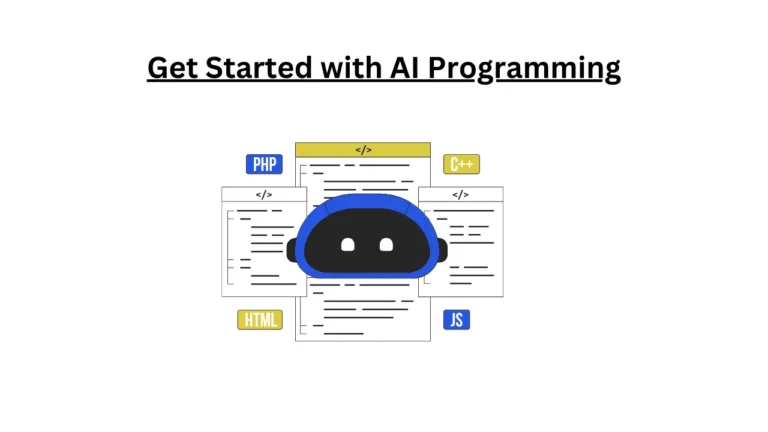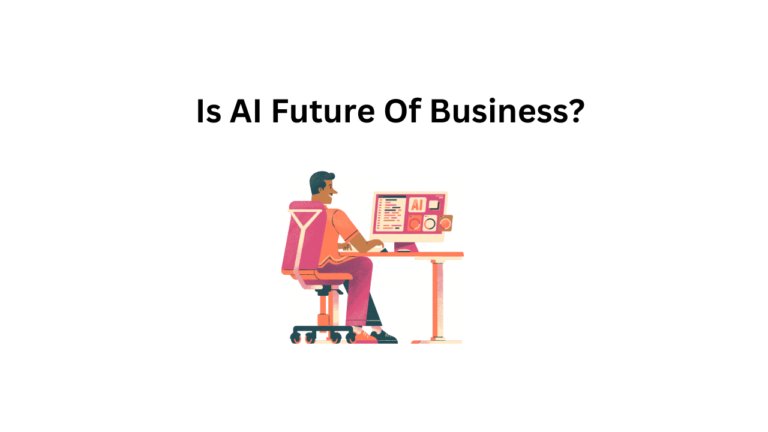Introduction
In recent years, the integration of Artificial Intelligence (AI) into various industries has accelerated, reshaping the landscape of work as we know it. As AI technologies continue to evolve, it’s essential for individuals to adapt and stay relevant in the ever-changing workforce. This article explores the dynamics of the future of work with AI and provides insights into maintaining relevance in this transformative era.

Understanding the Impact of AI on the Workforce
AI Reshaping Industries: AI is revolutionizing industries across the board, from manufacturing and healthcare to finance and beyond. By automating repetitive tasks and providing data-driven insights, AI is streamlining processes and enhancing efficiency.
Statistics and Case Studies: Statistics indicate a significant impact of AI on job markets, with forecasts suggesting both job displacement and creation. Case studies highlight how AI implementation has transformed businesses, leading to increased productivity and innovation.
Embracing Change: Adaptability in the AI Era

Importance of Adaptability: In the face of AI integration, adaptability is paramount. Individuals must embrace change and cultivate a growth mindset to thrive in dynamic work environments. By continuously learning and upskilling, individuals can position themselves for success amidst technological advancements.
Strategies for Skill Development: To complement AI technologies, individuals should focus on developing skills that are uniquely human, such as creativity, emotional intelligence, and critical thinking. These skills are invaluable in roles that require empathy, innovation, and complex problem-solving.
Leveraging AI Tools for Personal and Professional Growth
AI Tools Overview: A myriad of AI tools and technologies are available for personal and professional development. From virtual assistants to predictive analytics software, AI tools can enhance productivity, streamline workflows, and facilitate data-driven decision-making.
Examples of AI Enhancements: Real-life examples demonstrate how AI tools can revolutionize various job roles. For instance, AI-powered chatbots can provide instant customer support, while machine learning algorithms can optimize supply chain management processes.
Navigating the Ethical Implications of AI in the Workplace
Ethical Considerations: As AI adoption increases, it’s essential to address ethical considerations surrounding data privacy, algorithmic bias, and job displacement. Organizations must prioritize ethical AI development and implementation to build trust and mitigate risks.
Maintaining Transparency: Transparency is key in AI implementations. Organizations should ensure transparency in algorithmic decision-making processes and communicate openly with stakeholders about the ethical implications of AI technologies.
Cultivating Human-Centric Skills
Significance of Human-Centric Skills: In an AI-driven workplace, human-centric skills are more important than ever. Skills such as creativity, emotional intelligence, and critical thinking differentiate humans from machines and are crucial for innovation and problem-solving.
Fostering Creativity: Organizations can foster creativity by encouraging a culture of experimentation, risk-taking, and collaboration. By empowering employees to think outside the box, organizations can unlock new ideas and drive innovation.
Future Trends and Predictions
Emerging Trends: The future of work with AI is characterized by emerging trends such as remote work, gig economy platforms, and the rise of AI-powered decision support systems. These trends will continue to shape the workforce and create new opportunities for individuals.
Job Opportunities and Challenges: While AI presents new job opportunities, it also poses challenges such as job displacement and the need for upskilling and reskilling. Individuals must stay abreast of emerging trends and proactively adapt to remain competitive in the job market.
Practical Tips for Staying Relevant in the AI-Powered Workforce
Continuous Learning: Lifelong learning is essential for staying relevant in the AI-powered workforce. Individuals should invest in acquiring new skills and knowledge through online courses, workshops, and industry certifications.
Networking and Collaboration: Building professional networks and collaborating with peers in the industry can provide valuable insights and opportunities for career advancement. Networking events, conferences, and online communities are excellent platforms for connecting with like-minded professionals.
Case Studies: Real-Life Examples of Successful Adaptation
- Smart assistants: Virtual helpers like Siri, Alexa, and Google Assistant learn your habits and preferences over time. By adapting to your voice, routines, and questions, they provide a more personalized experience [2].
- Recommender systems: The suggestions you see on Netflix, Amazon, or Spotify use AI to analyze your past choices and recommend similar content you might enjoy. These systems constantly learn and adapt to your evolving tastes [3].
- Medical diagnosis: AI is being used to analyze medical images for diseases like skin cancer. These systems are trained on vast datasets and can achieve high accuracy in detecting abnormalities, potentially leading to earlier diagnoses and better outcomes [1].
- Fraud detection: Financial institutions use AI to monitor transactions for suspicious activity. By adapting to new patterns and scams, these systems can help prevent fraud and protect your financial security [2].
FAQs
- How can I stay relevant in an AI-integrated workplace?
- To stay relevant in an AI-integrated workplace, it’s crucial to embrace change and cultivate a growth mindset. This involves continuously learning new skills and staying updated with emerging technologies. Focus on developing human-centric skills such as creativity, emotional intelligence, and critical thinking, which complement AI technologies. Additionally, actively participate in professional networks, seek mentorship opportunities, and adapt to evolving job roles and responsibilities.
- What are the ethical considerations associated with AI adoption?
- Ethical considerations associated with AI adoption include issues such as data privacy, algorithmic bias, and job displacement. Organizations must prioritize transparency, fairness, and accountability in AI implementations to mitigate these risks. This involves ensuring transparent decision-making processes, addressing bias in algorithms, and upholding ethical standards in data collection and usage.
- Can AI tools enhance productivity in various job roles?
- Yes, AI tools have the potential to significantly enhance productivity in various job roles. For example, AI-powered automation can streamline repetitive tasks, allowing employees to focus on more strategic and creative aspects of their work. Additionally, AI-driven analytics can provide valuable insights for decision-making, leading to more informed and efficient processes across organizations.
- What are some practical tips for future-proofing my career in the AI era?
- Some practical tips for future-proofing your career in the AI era include investing in lifelong learning, staying updated with industry trends, and actively seeking opportunities for skill development. Embrace new technologies and be willing to adapt to changing job roles and responsibilities. Networking and collaboration with peers in the industry can also provide valuable insights and opportunities for career advancement.
- Are there real-life examples of successful adaptation to AI-driven changes?
- Yes, there are numerous real-life examples of successful adaptation to AI-driven changes. For instance, companies like Company X successfully implemented AI-powered solutions to improve customer service and operational efficiency. By studying such examples, individuals can gain valuable insights into how AI technologies can be effectively integrated into various industries and job roles.
- What are the emerging trends and predictions for the future of work with AI?
- Emerging trends in the future of work with AI include remote work, gig economy platforms, and the rise of AI-powered decision support systems. These trends are expected to continue shaping the workforce, creating new opportunities and challenges for individuals. It’s important to stay abreast of these trends and proactively adapt to remain competitive in the job market.
These faqs provide insights and guidance for individuals seeking to navigate the challenges and opportunities presented by AI integration in the workplace.
Conclusion
In conclusion, the future of work with AI presents both opportunities and challenges. By embracing change, cultivating human-centric skills, and leveraging AI tools responsibly, individuals can navigate the evolving landscape with confidence. Proactive adaptation and continuous learning are essential for professional growth and staying relevant in the AI-powered workforce.


